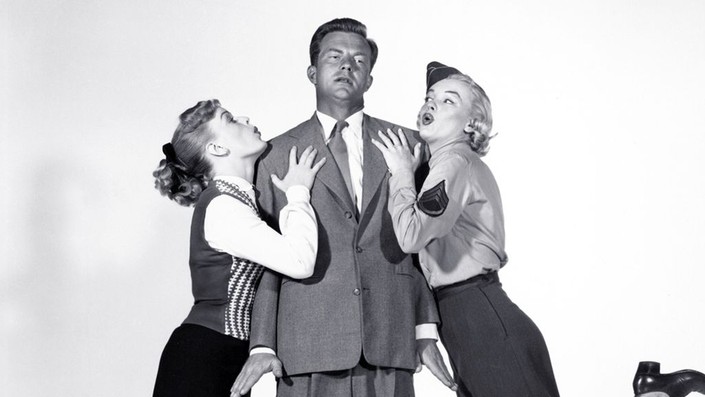newtownrrt.org – “Love Nest” is a 1951 American comedy film that brings to life the humorous and often chaotic world of post-war America. Directed by Joseph M. Newman, this film features a talented ensemble cast, including June Haver, William Lundigan, and Marilyn Monroe. Released by 20th Century Fox, “Love Nest” is a delightful exploration of love, relationships, and the unexpected challenges of urban life.
Plot Overview
Set in a bustling New York City apartment building, “Love Nest” follows the story of Jim and Connie Scott, a couple who decide to buy an old brownstone as an investment property. Their plan is to rent out the apartments to cover expenses, but things quickly become complicated with the arrival of a former wartime buddy, Charley Patterson, and a series of eccentric tenants.
The film’s narrative weaves together humorous misunderstandings and romantic entanglements, highlighting the trials and tribulations of managing an apartment building filled with colorful characters. As the story unfolds, the Scotts find themselves navigating a maze of relationships, including Charley’s ill-fated romantic pursuits and the antics of their tenants.
Marilyn Monroe’s Role
In “Love Nest,” Marilyn Monroe plays the role of Roberta Stevens, a glamorous and charming tenant who adds her own dose of intrigue to the mix. Although not the film’s lead, Monroe’s presence enhances the story with her captivating performance and undeniable screen presence. This role further cemented her rising status in Hollywood during the early 1950s.
Directorial Style
Joseph M. Newman’s direction in “Love Nest” captures the comedic essence of the film while maintaining a light-hearted tone throughout. His ability to balance humor with moments of genuine emotion provides audiences with an engaging viewing experience. Newman’s skillful storytelling and character-driven approach are evident in the film’s seamless blend of comedy and romance.
Cultural Context
Released during a period of optimism and change in post-war America, “Love Nest” reflects the societal shifts and aspirations of the time. The film’s portrayal of urban life and the pursuit of the American Dream resonates with audiences, offering a glimpse into the challenges and joys of starting anew in a rapidly changing world.
Conclusion
“Love Nest” remains a charming and entertaining film that captures the spirit of its era. With its compelling storyline and memorable performances, particularly by Marilyn Monroe, it continues to be appreciated by fans of classic cinema. As viewers revisit this comedic gem, they are reminded of the enduring appeal of love, laughter, and the timeless charm of Hollywood’s golden age.
